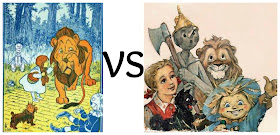Author: Heinrich Böll
First published: 1973
Add it: Goodreads
Rating: ★★★☆☆
As a challenge host, I'm not setting a good example by writing my review on the last day of the challenge. But the good thing about being a host is that you have PRIVILEGES, so I've decided to give everybody a grace period until September 8. to finish all the writings for the challenge. See the finish line post for details.
As for me, I could have written this review earlier this week, but I had two reasons for lingering. First I was arguing with myself if I want of if I don't want to write something in German, and after some frustration about not being able to formulate a simple sentence, I decided that a review in German is too much stress. Second, this week I was nervous about an upcoming minor operation, and just couldn't concentrate enough to write something reasonable. I've had the operation today, and now, as I am lying at home and "enjoying" the feeling of not being able to handle my lower body well because of the anesthesia, I have some calm time for writing all the reviews I want.
This is an adapted book, only 80 pages long. The back states that its vocabulary is only 2400 words, but either there are more, or all of them are some words I don't know, as I had to look up approximately every 5th word. I wanted to take a photo of the notes I was taking in the book just to show you how much I needed to write there, but of course I've lost the device which I use to transfer photos from the telephone to the computer, and I'd prefer to regain control of my legs before undertaking a search-and-rescue expedition under my bed, so this is not going to happen.
Obviously, I've lost the skill of dealing with German word order fast, because there were sentences that I had to re-read up to 10 times to understand the structure of their numerous subordinate clauses. But sometimes after an hour or so of reading I reached some "German Zen" and was able to read whole paragraphs without opening the dictionary. Unfortunately, this state of mind never lasts long :)
There are 5 short stories in the book, bound with the shared topic of justice. Two of them I really liked: "Der Lacher" and "Mein Onkel Fred". One, "Die Waage der Beleks" is beautifully written in the style of a folk legend, and I generally enjoyed it, but for the moralistic ending. And the last two ones, "Wie in schlechten Romanen" and "Daniel der Gerechte" were not such a good experience, the last one because of a lot of confusing flashbacks, and the first one because I just didn't get the point of the story, even after making sure I fully understand it. The stories can't be called optimistic, but even in the adaptation the superb writing style of the author is visible.
In my book:
It is a good book for refreshing your German skills, because it consists of short stories and because the writing is good in spite of it being an adaptation.
This is my last book for my own Language Freak Summer Challenge. I've completed my goals by reading one book in Spanish (review), one book in German (this one) and two instead of one books in Czech (review 1, review 2). I'm pretty proud of myself, and I think this summer has not passed in vain!








.jpg)



















.jpg)





